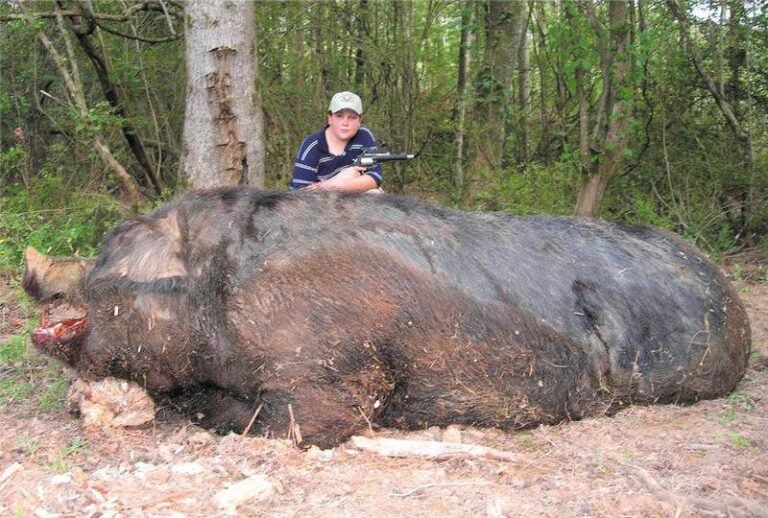Volunteering in the Great Outdoors: Opportunities in Hunting Groups
Volunteering in hunting organizations is the selfless act of offering one’s time, skills, and resources for the betterment of others and society. It is a noble endeavor that profoundly impacts the volunteers and the community they serve. By dedicating their time and expertise to various causes, volunteers play a vital role in addressing social issues, promoting positive change, and fostering compassion.
The importance of volunteering cannot be overstated. It is essential to a functioning society as it bridges gaps between individuals, communities, and institutions.
Volunteering provides an opportunity for people from diverse backgrounds to come together with a shared purpose – to make a difference in the lives of others. Through volunteering, individuals develop empathy, build stronger communities, and contribute towards the greater good.
When it comes to hunting organizations, volunteering takes on added significance. These organizations are pivotal in wildlife conservation efforts and promote ethical hunting practices.
Hunting organizations understand that conservation is not just about preserving habitats or animal populations; it is about ensuring sustainable ecosystems where humans and wildlife can thrive harmoniously. By actively engaging in volunteer work within hunting organizations, individuals can directly contribute to these important goals.
Definition of Volunteering
Volunteering encompasses various acts of service performed willingly without financial gain or obligation. It involves offering time, skills, or resources for charitable purposes or community development initiatives.
Whether working directly with people in need or contributing towards environmental causes like wildlife conservation, volunteering embraces a wide range of activities that aim to improve society. What sets volunteering apart from other forms of assistance is its voluntary nature – volunteers willingly dedicate their time to specific causes they feel passionate about.
They are motivated by altruism rather than personal gain or external pressure. This commitment stems from a genuine desire to make a positive impact and contribute towards the well-being of others.
Importance of Volunteering in Society
Volunteering plays a crucial societal role by addressing social, economic, and environmental challenges. It acts as a catalyst for positive change, bringing people together to work towards shared goals.
The importance of volunteering is evident in the profound impact it has on individuals, communities, and society as a whole. Firstly, volunteering provides opportunities for personal growth and development.
By engaging in volunteer work, individuals acquire new skills, expand their knowledge base, and gain hands-on experience related to the causes they support. This enhances their employability and fosters personal growth by promoting empathy, compassion, and understanding.
Secondly, volunteering strengthens social connections and builds stronger communities. Through volunteer programs, individuals from diverse backgrounds come together with shared aspirations.
They work collaboratively towards common goals while fostering social cohesion and understanding among different groups within society. This sense of unity creates stronger communities better equipped to tackle societal challenges.
Hunting Organizations and Their Role in Conservation
Hunting organizations are dedicated to promoting responsible hunting practices while actively participating in wildlife conservation efforts. These organizations recognize that conservation is an integral part of sustainable hunting practices – preserving habitats and protecting animal populations ensures the long-term viability of hunting traditions. Hunting organizations often collaborate with government agencies, research institutions, landowners, and other stakeholders to develop comprehensive conservation strategies.
These strategies focus on habitat management initiatives such as reforestation or enhancing wetland ecosystems critical for migratory birds. Additionally, hunting organizations invest in scientific research aimed at wildlife monitoring or ecological studies that provide valuable data for informed decision-making.
The concerted efforts made by hunting organizations contribute not only to the preservation of diverse wildlife populations but also to the overall ecological balance. By actively engaging in volunteer work within these organizations, individuals can directly contribute to conservation efforts while promoting the responsible and ethical practice of hunting.
The Benefits of Volunteering in Hunting Organizations
Personal development and growth
Volunteering in hunting organizations offers many opportunities for personal development and growth. Engaging in such activities allows individuals to acquire new skills and knowledge related to hunting and conservation, which can profoundly impact their lives.
These organizations often provide comprehensive training programs that educate volunteers about hunting practices, wildlife management, and habitat preservation. Through hands-on experiences, volunteers can learn essential skills such as tracking, game management, and firearm safety.
Moreover, volunteering in hunting organizations promotes improved physical fitness and offers unique outdoor experiences. Pursuing conservation activities often involves physically demanding tasks like habitat restoration projects or wildlife monitoring expeditions.
By actively engaging in these endeavors, volunteers contribute to the protection of natural habitats and enhance their fitness levels. Working outdoors amidst scenic landscapes allows individuals to connect with nature on a deeper level, fostering a sense of well-being and tranquility that cannot be replicated within urban settings.
Contribution to wildlife conservation efforts
Volunteers play a pivotal role in the conservation efforts undertaken by hunting organizations. These initiatives focus on protecting habitats and maintaining sustainable populations of diverse wildlife species.
By dedicating their time and effort to these causes, volunteers actively contribute towards safeguarding the delicate balance of ecosystems. Conservation projects led by hunting organizations include initiatives such as reforestation programs, wetland preservation efforts, or the creation of food plots for specific animal species.
Volunteers participate in these activities by planting trees or establishing nesting structures that provide shelter for birds or mammals. Additionally, they assist in conducting population surveys to monitor animal numbers accurately.
Research is another vital aspect of wildlife conservation where volunteer involvement is crucial. Many hunting organizations collaborate with scientists to study animal behavior patterns or migration routes through field research projects.
Volunteers help collect data on animal movements, habitat preferences, and population dynamics. These research initiatives provide valuable insights into the ecological needs of different species, aiding in implementing effective conservation strategies.
Ethical hunting practices to ensure sustainable populations
One of the fundamental goals of hunting organizations is to promote ethical hunting practices that prioritize sustainable populations. By volunteering within these organizations, individuals actively participate in educational and outreach programs to foster a culture of responsible hunting. Volunteers engage with the public through workshops, seminars, and hunter education programs, emphasizing the importance of ethical conduct during hunting activities.
They educate hunters on fair chase principles, legal regulations, and respect for wildlife and their habitats. In doing so, volunteers raise awareness about the significance of maintaining balanced ecosystems for future generations.
By promoting ethical hunting practices and advocating for conservation-minded attitudes within their communities, volunteers contribute to a greater understanding of the role hunters can play as stewards of nature. Their efforts help debunk hunting misconceptions while highlighting its potential as a tool for conserving wildlife populations responsibly and sustainably.
Volunteering in hunting organizations offers numerous benefits, both personally and ecologically. It allows individuals to acquire new skills and knowledge related to hunting practices and conservation efforts while enhancing physical fitness through outdoor experiences.
Through their involvement in various projects like habitat restoration or wildlife research initiatives, volunteers actively contribute to wildlife conservation by protecting habitats and ensuring sustainable populations. Additionally, their advocacy for ethical hunting practices helps foster a culture that appreciates responsible engagement with nature while safeguarding its resources for future generations.
Habitat Restoration and Improvement Programs
One of the key areas where volunteers can make a significant impact in hunting organizations is through habitat restoration and improvement programs. These initiatives aim to enhance the natural habitats for various species, ensuring their survival and promoting biodiversity. Volunteers in such programs engage in activities like planting trees, creating food plots, building nesting structures, and implementing erosion control measures.
By planting trees, volunteers contribute to reforestation efforts that provide animals shelter and help combat climate change. Food plots are designed to attract certain species, such as deer or waterfowl, by providing nutrition-rich food sources.
Nesting structures are constructed to facilitate breeding and nesting for birds, creating safe spaces for their reproduction. Furthermore, habitat restoration projects often focus on enhancing habitats for specific species that may be threatened or endangered.
For example, volunteers could engage in wetland restoration to support waterfowl populations or participate in reestablishing native plant communities that sustain deer populations. Through these hands-on activities, volunteers play a vital role in conserving wildlife habitats and ensuring the long-term survival of various species.
Wildlife Monitoring and Research Projects
In addition to habitat restoration efforts, hunting organizations also rely on volunteer assistance for wildlife monitoring and research projects. These initiatives involve collecting valuable data on animal populations, behavior patterns, migration routes, and habitat usage.
Volunteers can contribute by assisting with population surveys such as bird counts or conducting camera trap monitoring to track elusive species like big cats or rare ungulates. These surveys help researchers estimate population densities and monitor changes over time.
Data collection on animal behavior is another crucial aspect of wildlife research projects where volunteers can play an active role. By observing animals’ feeding habits, mating rituals, or social interactions within their natural environment, volunteers contribute to a better understanding of species’ ecological needs and behaviors.
Education and Outreach Initiatives
Education and outreach initiatives organized by hunting organizations provide opportunities for volunteers to engage with the public, promoting ethical hunting practices and fostering a sense of responsibility towards conservation. Volunteers can help organize workshops or seminars on hunting ethics and safety measures, educating hunters about the importance of sustainable hunting practices. These sessions cover proper weapon handling, wildlife identification, field dressing techniques, and laws governing hunting activities.
Moreover, engaging with the public through events like hunter-education programs or youth camps allows volunteers to inspire the next generation of conservationists. By teaching young individuals about wildlife conservation principles, the significance of ethical hunting practices, and fostering an appreciation for nature’s wonders, volunteers contribute to shaping responsible hunters who prioritize sustainability and environmental stewardship.
Hunting Organizations Offering Volunteer Opportunities
National Wild Turkey Federation (NWTF)
The National Wild Turkey Federation (NWTF) is a renowned hunting organization dedicated to conserving wild turkeys and their habitats. The mission of NWTF is twofold: to restore wild turkey populations across North America and to preserve our hunting heritage.
With over 250,000 members and counting, NWTF provides numerous volunteer opportunities for individuals passionate about turkey conservation. NWTF’s volunteer programs are designed to engage people with various expertise and commitment levels.
Volunteers play an integral role in advancing NWTF’s mission, from local chapter events to national initiatives. Some common volunteer roles within NWTF include habitat improvement projects such as tree planting, controlled burns, and food plot maintenance.
Additionally, volunteers can participate in educational programs focusing on hunter safety, outdoor skills development, or mentorship for new hunters.
Ducks Unlimited (DU)
Ducks Unlimited (DU) is a leading hunting organization dedicated to preserving and restoring wetlands crucial for waterfowl conservation. DU recognizes that healthy wetlands benefit ducks and provide essential habitat for countless other species.
Individuals contribute directly to protecting wetlands by volunteering with DU while enjoying rewarding natural experiences. DU strongly emphasizes wetland conservation through restoration efforts that include reestablishing vegetation cover, improving water management systems, and controlling invasive species.
Volunteers can participate in hands-on projects such as constructing nesting structures or installing artificial wetlands. Furthermore, DU offers volunteer opportunities at local chapters or events like fundraising banquets where individuals can contribute their organizational skills or assist with community outreach efforts.
Rocky Mountain Elk Foundation
The Rocky Mountain Elk Foundation (RMEF) excels in conserving elk populations and protecting their habitats throughout North America. With a passionate community of volunteers, RMEF has made remarkable strides in ensuring the future of elk hunting and preserving the wild places where these iconic animals roam.
Volunteer opportunities within RMEF cover a wide range of activities. One notable area involves participating in habitat enhancement projects, such as restoring degraded areas, planting native vegetation, or constructing wildlife-friendly fencing.
Volunteers can also engage in research initiatives by assisting with elk population surveys or contributing to migration patterns and habitat utilization studies.
Additionally, RMEF organizes educational events and outreach programs to promote ethical hunting practices and instill a sense of stewardship among hunters.

Conclusion
Volunteering in hunting organizations allows individuals to actively participate in wildlife conservation efforts while deepening their connection with nature. Notable organizations like NWTF, DU, and RMEF provide diverse volunteer opportunities that cater to different interests and skill sets.
Whether restoring wetlands for waterfowl or enhancing elk habitats, these organizations empower volunteers to make a tangible difference while fostering a sense of camaraderie among fellow conservationists. By dedicating our time and skills to these causes, we contribute not only to the preservation of our hunting heritage but also to the overall health and sustainability of our natural world.




